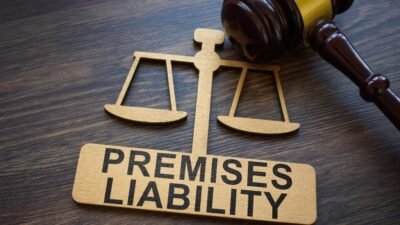A non-disclosure agreement (NDA) protects sensitive information in business, but if it is not carefully drafted, it can create more problems than it solves. A poorly written NDA can lead to confusion, unenforceability, and even legal disputes that harm the very interests it was meant to protect.
Houston is a beautiful city in Southeast Texas. It is one of the busiest cities in Texas. When considering NDAs, it is crucial to work with a skilled non-disclosure attorney in Houston who understands the local legal landscape and can tailor agreements to specific needs.
This helps avoid common pitfalls that arise from vague or overly broad language, which often causes NDAs to backfire.
The Risks of Vague or Overbroad NDAs
One of the most frequent issues with NDAs is defining what information is confidential. Some agreements use catch-all phrases like “all information shared” without clarifying what constitutes confidential information.
This can make enforcement difficult because it may include information that is already public or trivial, thereby diluting the effectiveness of the agreement. Courts tend to reject NDAs that are too broad or vague, as they can be seen as unfair or unenforceable.
Another problem is failing to specify the duration of confidentiality. Without clear time limits, parties may be uncertain about how long they must keep information secret, leading to accidental breaches or disputes.
Similarly, NDAs should clarify whether they cover only written information or also oral disclosures, as this distinction affects how parties handle sensitive information.
Legal and Practical Complications
NDAs that are poorly drafted can also complicate legal recourse in the event of a breach. If the terms are ambiguous, it becomes challenging to prove that confidential information was improperly disclosed or used.
This uncertainty can discourage parties from pursuing enforcement or lead to costly and prolonged litigation. Additionally, overly restrictive NDAs may clash with public policy, especially if they attempt to silence whistleblowers or prevent reporting of illegal activities.
Courts may refuse to enforce such provisions, rendering the NDA ineffective and potentially exposing the disclosing party to reputational damage.
How to Avoid These Pitfalls
To prevent NDAs from backfiring, it is essential to draft them with precision and clarity. This includes:
- Clearly defining what information is confidential, listing specific categories such as trade secrets, financial data, or business strategies, rather than using vague terms.
- Setting reasonable time frames for confidentiality obligations.
- Specifying the scope of the agreement, including geographic limits and whether oral disclosures are covered.
- Including provisions for dispute resolution and consequences of breach to provide clear guidance on enforcement.
Working with a knowledgeable attorney in Houston ensures that these elements are appropriately addressed, tailoring the NDA to the unique circumstances of the business relationship.
Final Thoughts
Non-disclosure agreements are powerful tools when crafted correctly, but they can easily backfire if written poorly. Vague language, unclear scope, and unreasonable restrictions can undermine their purpose and lead to legal challenges.
In Houston, engaging a non-disclosure attorney can make all the difference by creating agreements that effectively protect confidential information and withstand scrutiny if challenged. Taking the time to get NDAs right helps businesses safeguard their valuable information without unintended consequences.



